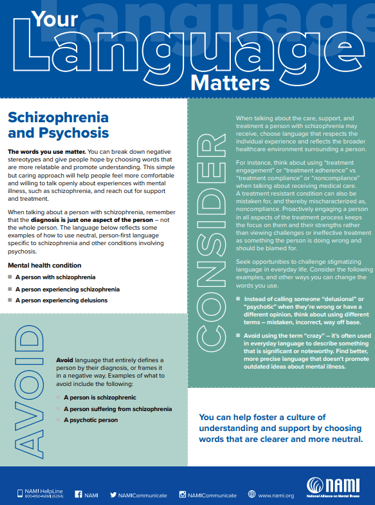What is schizophrenia?
Schizophrenia is a severe mental illness characterized by delusions, hallucinations, trouble with thinking and concentration and in some cases, bizarre behavior. Hallucinations are hearing or seeing things that do not exist outside of the mind, while delusions are unusual beliefs not based on reality. Although it is a common misunderstanding, schizophrenia is not related to having multiple personalities. Persons with schizophrenia experience:
Delusions. They believe things that are not connected to reality. For example, a common delusion is that the government is out to get you. These beliefs are strongly rooted despite evidence and reasoning.
Hallucinations. These are different from delusions. They involve seeing or hearing things. Thought they may be connected to delusional thinking, hallucinations are experienced as you hear voices or see things that others don't.
Disorganized speech and thinking. To go along with their beliefs and experiences, persons with schizophrenia may also have difficulty communicating.
Unusual behavior. They may act child-like, or act different.
Diminished activity. For example, they stop bathing, refuse to make eye contact, or socially withdraw from others.
3 labels to Avoid When Talking About Schizophrenia
Calling someone "schizophrenic"
Calling someone "psychotic"
Calling someone "delusional"
Using these labels to describe someone with schizophrenia reduces them to their behavior or diagnosis. It's very important to remember that persons with mental illness are more than their symptoms or diagnosis. They have a life with family, friends, likes, and dislikes just like everyone else. Resist the urge to minimize them with a label.
Download NAMI's resource to find out more.

